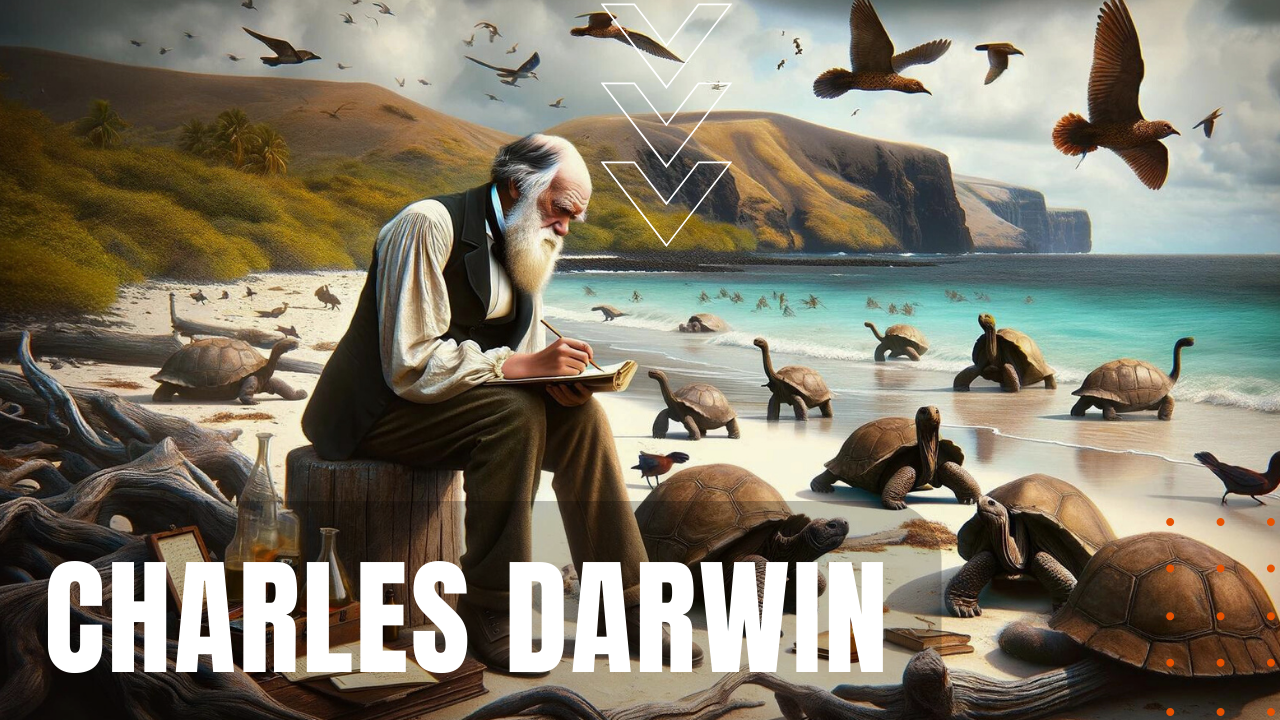Charles Darwin

Born in 1809 Shrewsbury England, into a wealthy family of scientists and physicians, Charles Darwin enrolled at the University of Edinburgh at 16 years of age, before matriculating at age 18 to Christ’s College Cambridge. While his physician father encouraged his son to follow him into medicine, Darwin fell in love with natural history, mentored by botany professor John Stevens Henslow, who recommended Darwin for a naturalist’s position aboard the HMS Beagle, which was about to set sail on a five-year survey trip around the world.
Naturalist Captain
Departing on December 27th, 1831, under the command of naturalist enthusiast Captain Robert FitzRoy, Darwin and FitzRoy collected thousands of animal, plant and fossil samples, including more than 700 bird skins. The Pacific Islands and the Galapagos Archipelago proved to be of particular interest to Darwin, who began to challenge the Christian Creationist beliefs of the day that all species, including man, were created statically and complete by God at the beginning of time, instead focusing on anatomic differences in Galapagos giant tortoises, finches and orchids that evolved differently based on their geographic environments and local challenges.
First Thoughts on Paper
Returning to England in 1836, Darwin first wrote up his findings in the Journal of Researches, published as part of Captain FitzRoy’s larger narrative of their voyage, entitled the Zoology of the Voyage of the HMS Beagle. In 1858, in a letter read at a meeting of the Linnean Society, Darwin publicly introduced his theory of evolution, while on November 24th, 1859, he published his best-known work now known collectively as Darwinism, On the Origin of Species by Means of Natural Selection.
A Radical New Thinking
Despite continued push back from bible-centric believers, over the years since Darwin’s breakthrough understanding, DNA studies have provided concrete evidence in support of Darwin’s theory of evolution and his concept of survival of the fittest through a process of natural selection, which suggests that species who adapted or evolved to meet their changing natural habitat survived, while those who failed to evolve failed to perpetuate. He passed away at his family home in London on April 19th, 1882, making the life and insights of Charles Darwin, an evolutionary leap forward in man’s understanding of the natural world.
